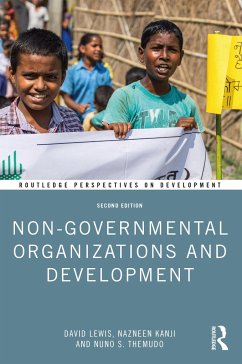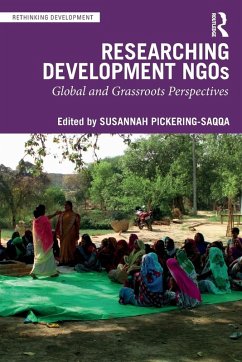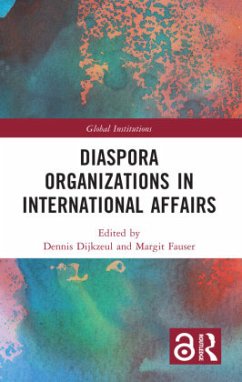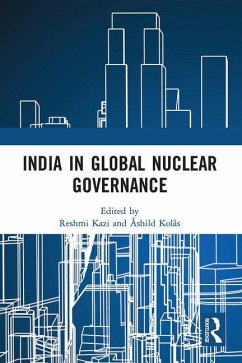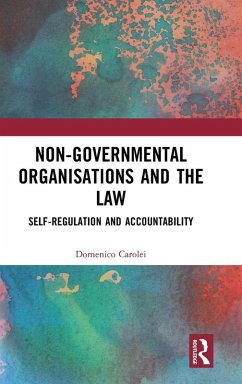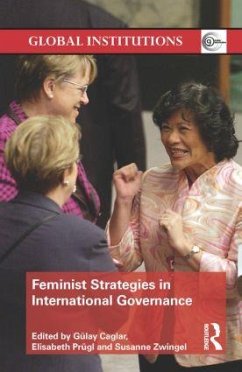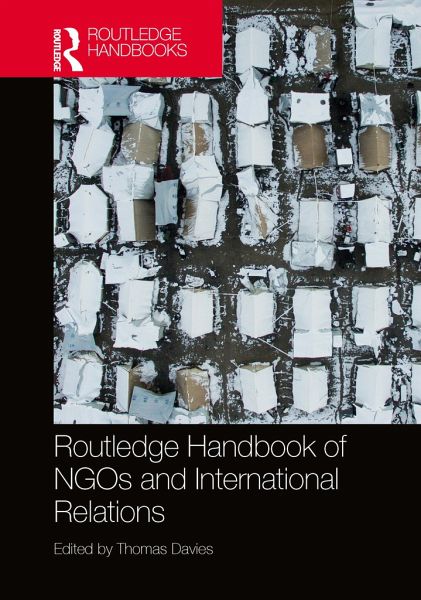
Routledge Handbook of NGOs and International Relations
Versandkostenfrei!
Versandfertig in 6-10 Tagen
44,99 €
inkl. MwSt.
Weitere Ausgaben:

PAYBACK Punkte
22 °P sammeln!
Offering insights from pioneering new perspectives in addition to well-established traditions of research, this Handbook considers the activities not only of advocacy groups in the environmental, feminist, human rights, humanitarian, and peace sectors, but also the array of religious, professional, and business associations that make up the wider non-governmental organization (NGO) community.Including perspectives from multiple world regions, the book takes account of institutions in the Global South, alongside better-known structures of the Global North. International contributors from a rang...
Offering insights from pioneering new perspectives in addition to well-established traditions of research, this Handbook considers the activities not only of advocacy groups in the environmental, feminist, human rights, humanitarian, and peace sectors, but also the array of religious, professional, and business associations that make up the wider non-governmental organization (NGO) community.
Including perspectives from multiple world regions, the book takes account of institutions in the Global South, alongside better-known structures of the Global North. International contributors from a range of disciplines cover all the major aspects of research into NGOs in International Relations to present:
a comprehensive overview of the historical evolution of NGOs, the range of structural forms and international networks
coverage of major theoretical perspectives
illustrations of how NGOs are influential in every prominent issue-area of contemporary International Relations
evaluation of the significant regional variations among NGOs and how regional contexts influence the nature and impact of NGOs
analysis of the ways NGOs address authoritarianism, terrorism, and challenges to democracy, and how NGOs handle concerns surrounding their own legitimacy and accountability.
Exploring contrasting theories, regional dimensions, and a wide range of contemporary challenges facing NGOs, this Handbook will be essential reading for students, scholars, and practitioners alike.
Including perspectives from multiple world regions, the book takes account of institutions in the Global South, alongside better-known structures of the Global North. International contributors from a range of disciplines cover all the major aspects of research into NGOs in International Relations to present:
a comprehensive overview of the historical evolution of NGOs, the range of structural forms and international networks
coverage of major theoretical perspectives
illustrations of how NGOs are influential in every prominent issue-area of contemporary International Relations
evaluation of the significant regional variations among NGOs and how regional contexts influence the nature and impact of NGOs
analysis of the ways NGOs address authoritarianism, terrorism, and challenges to democracy, and how NGOs handle concerns surrounding their own legitimacy and accountability.
Exploring contrasting theories, regional dimensions, and a wide range of contemporary challenges facing NGOs, this Handbook will be essential reading for students, scholars, and practitioners alike.






